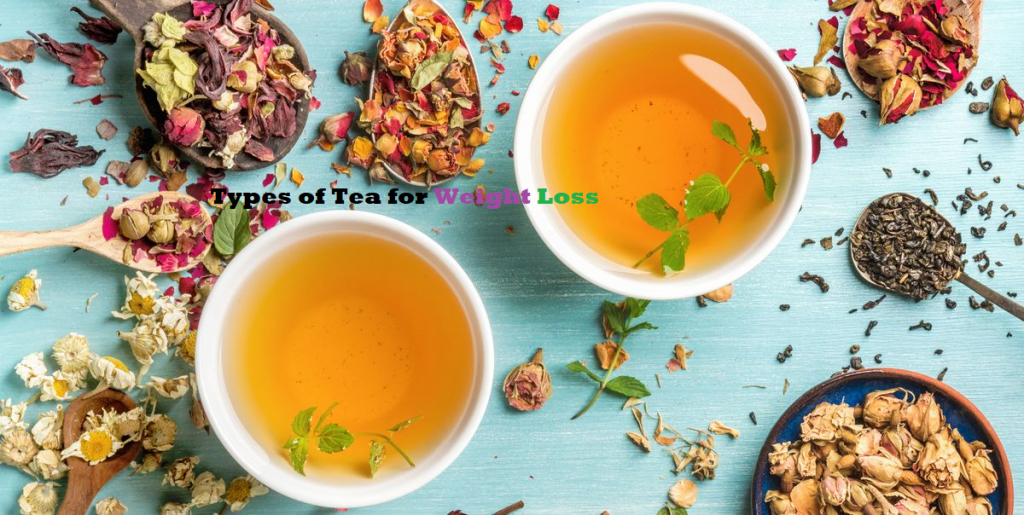Trim Down with Tea: Your Secret to Weight Loss
Introduction:
Tea has been consumed for centuries, cherished for its soothing properties and wide range of flavors. But did you know that tea can also be a powerful tool in your weight loss journey? With its natural compounds and health benefits, tea can help you trim down and achieve your weight loss goals. In this article, we will explore the different types of tea that promote weight loss, understand how tea aids in shedding pounds, learn how to incorporate tea into your routine, and discover other essential tips for effective weight loss. So, get ready to embrace the power of tea and discover your secret weapon for trimming down.
Types of Tea for Weight Loss:

- Green Tea: Nature’s Fat-Burning Elixir
Green tea is renowned for its numerous health benefits, including its potential for weight loss. Packed with antioxidants called catechins, green tea helps boost metabolism and enhance fat oxidation. Studies have shown that regular consumption of green tea can aid in weight loss by promoting thermogenesis and increasing calorie expenditure. So, brew yourself a cup of green tea and let its fat-burning properties work their magic.
- Oolong Tea: A Tantalizing Path to Shedding Pounds
If you’re looking for a tea that strikes a balance between the robustness of black tea and the freshness of green tea, oolong tea is the answer. Oolong tea assists in weight loss by improving fat metabolism and regulating blood sugar levels. Research suggests that oolong tea can boost energy expenditure and enhance fat oxidation, making it a valuable addition to your weight loss regimen.
- Pu-erh Tea: Fermented Flavor for Weight Loss
Originating from the Yunnan province in China, pu-erh tea is a unique fermented tea variety known for its potential weight loss benefits. This tea contains microorganisms that ferment the tea leaves, resulting in a distinct flavor profile. Pu-erh tea is believed to aid digestion, reduce fat absorption, and regulate cholesterol levels. By incorporating pu-erh tea into your routine, you can enjoy a flavorful cup while supporting your weight loss efforts.
- Herbal Teas: Infusions for a Healthier You
Herbal teas offer a diverse range of flavors and natural compounds that can contribute to weight loss. Varieties such as peppermint, chamomile, and hibiscus are caffeine-free options that can help curb cravings, improve digestion, and provide a calming effect. When choosing herbal teas for weight loss, opt for pure blends without added sugars or artificial ingredients.
How Tea Promotes Weight Loss:
- Boosts Metabolism: Igniting Your Calorie-Burning Furnace
Tea, particularly green tea, contains catechins that have been shown to boost metabolism. By increasing thermogenesis and fat oxidation, tea can help your body burn calories more efficiently. So, sip on a cup of tea to give your metabolism a gentle nudge and turn up the heat on your weight loss journey.
- Appetite Suppressant: Taming the Temptation
Are cravings and overeating sabotaging your weight loss efforts? Tea can come to your rescue. Certain varieties, such as oolong tea, have been found to suppress appetite and reduce hunger pangs. By incorporating tea into your daily routine, you can feel fuller for longer, making it easier to resist unhealthy snacks and stick to your calorie goals.
- Energy Boost: Fueling Your Active Lifestyle
For those seeking an alternative to sugary energy drinks or coffee, tea provides a natural and healthier option. With its moderate caffeine content and invigorating properties, tea can provide an energy boost to power your workouts and active lifestyle. Whether you prefer a gentle green tea or a robust black tea, sipping on tea can be a refreshing and energizing way to keep you going throughout the day.
Incorporating Tea into a Weight Loss Routine:
- Choosing the Right Tea: Find Your Perfect Match
When selecting tea for weight loss, consider your preferences, caffeine sensitivity, and desired effects. Green tea is a popular choice for its metabolism-boosting properties, while oolong tea offers a balanced flavor profile. Pu-erh tea appeals to those seeking a unique taste, and herbal teas provide a caffeine-free option. Experiment with different teas and find the ones that resonate with you and your weight loss goals.
- Brewing Techniques: Unleash the Full Potential
To extract the maximum benefits from your tea, proper brewing techniques are essential. Pay attention to water temperature and steeping time. Green tea benefits from lower temperatures (around 160-180°F or 70-80°C) and shorter steeping times, while black tea can handle higher temperatures (around 200-212°F or 90-100°C) and longer steeping. Adjust the brewing parameters to achieve your desired flavor and strength.
- Enhancing Tea’s Benefits: Add a Twist
Tea offers a blank canvas for customization. Experiment with adding lemon slices, fresh ginger, or other natural ingredients to enhance the taste and health benefits. Lemon can provide a tangy twist while adding vitamin C, while ginger can add warmth and aid digestion. Combining tea with complementary ingredients can create delightful and healthful concoctions that support your weight loss journey.
Other Tips for Weight Loss:
- Balanced Diet: Nourish Your Body
While tea can be a helpful addition to your weight loss efforts, it’s crucial to maintain a balanced and nutritious diet. Focus on consuming whole foods, including plenty of fruits, vegetables, lean proteins, and whole grains. Opt for portion control, mindful eating, and seek guidance from a registered dietitian or nutritionist for personalized advice.
- Regular Exercise: Move to Lose
Pairing regular exercise with your tea consumption can accelerate your weight loss results. Find physical activities that you enjoy, whether it’s jogging, cycling, dancing, or practicing yoga. Aim for a combination of cardiovascular exercises, strength training, and flexibility work to achieve a well-rounded fitness routine.
- Lifestyle Factors: Manage Stress, Sleep Well
Incorporate stress management techniques, such as meditation or deep breathing exercises, to reduce cortisol levels and support healthy weight management. Additionally, prioritize quality sleep, as lack of sleep can disrupt hunger-regulating hormones and contribute to weight gain. Take care of your overall well-being to create a positive environment for successful weight loss.
Conclusion:
Tea, with its diverse flavors and remarkable health benefits, can be your secret weapon for weight loss. Whether you choose green tea, oolong tea, pu-erh tea, or herbal teas, incorporating them into your routine can boost metabolism, suppress appetite, and provide a natural energy boost. Alongside tea, maintain a balanced diet, engage in regular exercise, and prioritize lifestyle factors for a holistic approach to weight loss. So, start sipping and trim down with the power of tea.

FAQs
Q1: Can tea alone help me lose weight? A1: While tea can be a beneficial addition to your weight loss journey, it’s essential to adopt a comprehensive approach that includes a balanced diet, regular exercise, and other healthy lifestyle habits.
Q2: How many cups of tea should I drink per day for weight loss? A2: The optimal number of cups varies depending on factors like the type of tea, your caffeine sensitivity, and overall health. However, consuming 2-3 cups of tea per day can be a good starting point.
Q3: Can I add sweeteners or milk to my tea for weight loss? A3: It’s best to avoid adding sweeteners or excessive amounts of milk to your tea if you’re aiming for weight loss. These additions can increase calorie intake and offset the potential benefits of tea.
Q4: Can I drink tea before exercising? A4: Absolutely! Drinking tea before exercising can provide a natural energy boost and help improve endurance and fat oxidation. However, listen to your body and adjust accordingly to avoid discomfort during physical activity.
Q5: Are there any potential side effects of drinking tea for weight loss? A5: While tea is generally safe for most people, excessive consumption or sensitivity to caffeine can lead to side effects like insomnia, increased heart rate, or digestive issues. Monitor your tea intake and consult a healthcare professional if you have any concerns.




